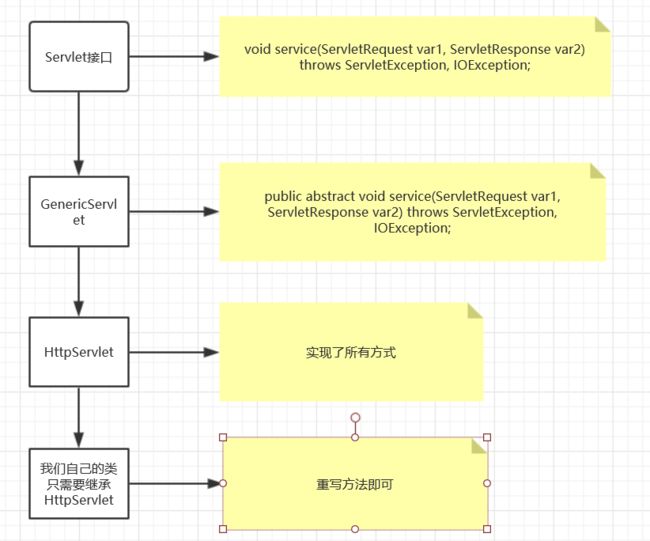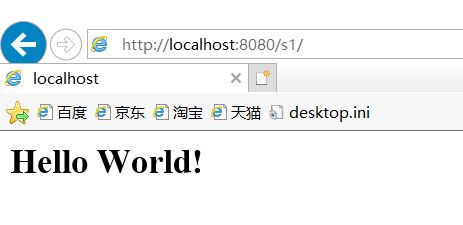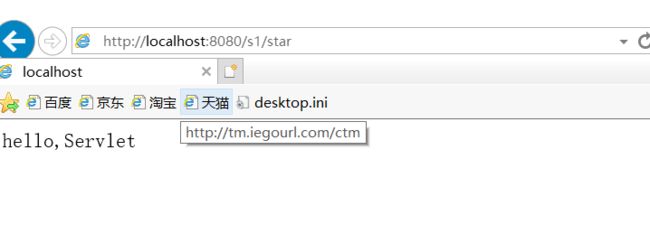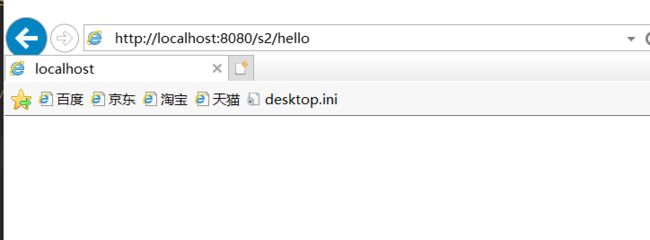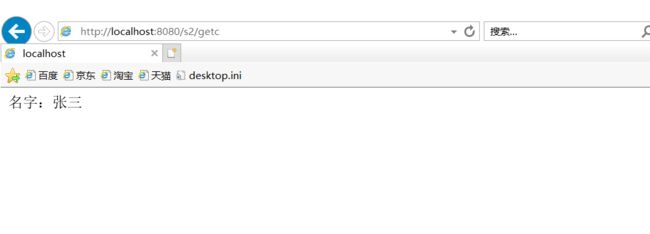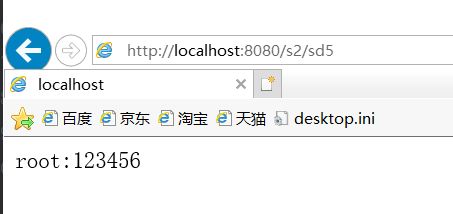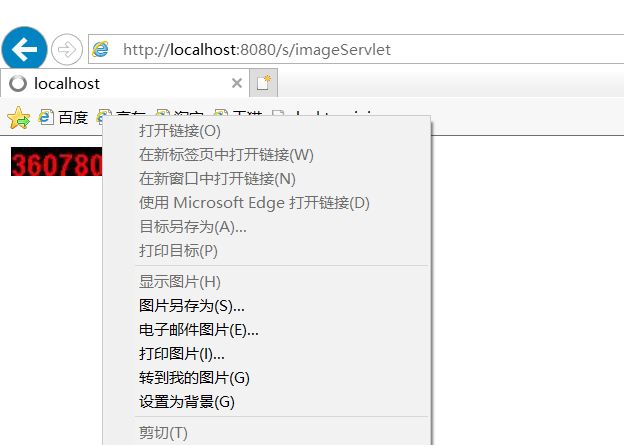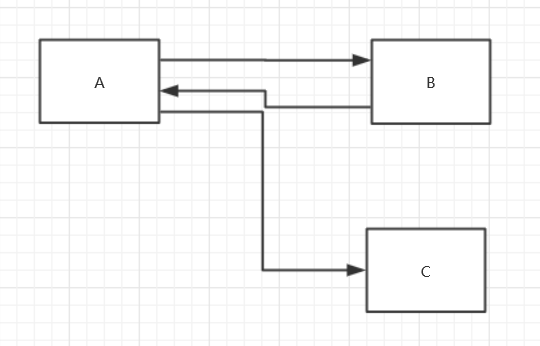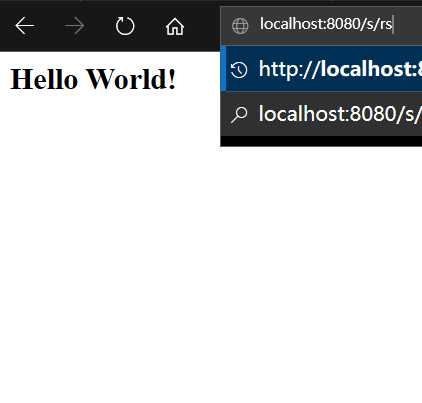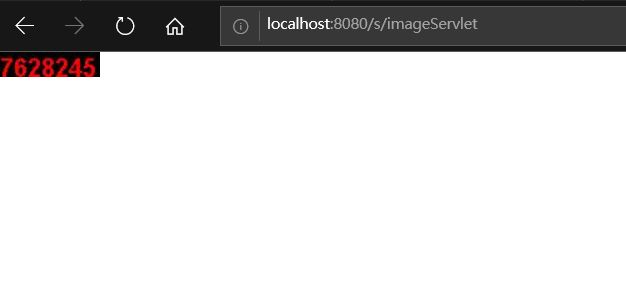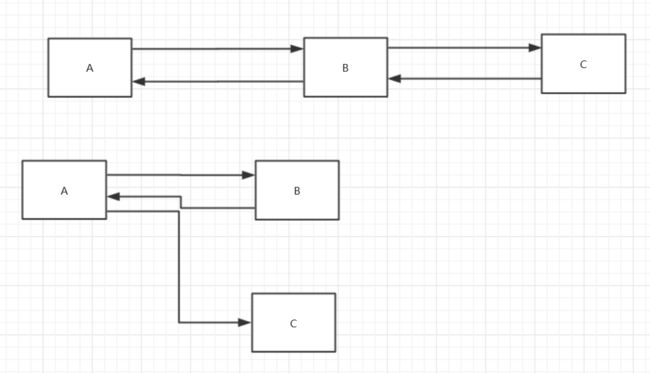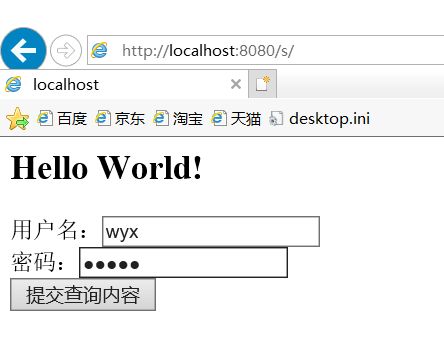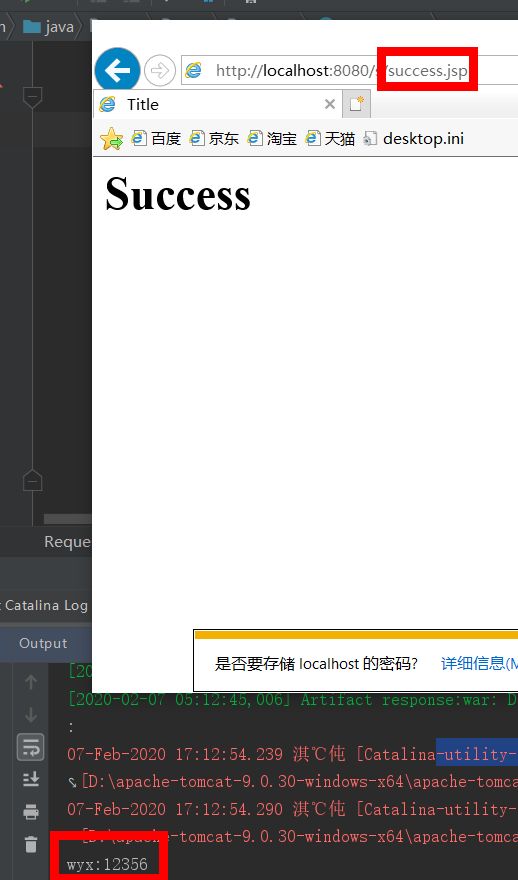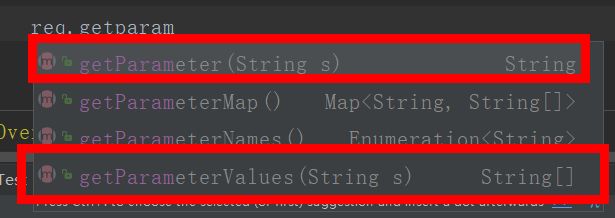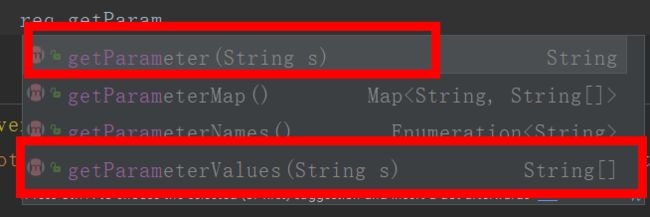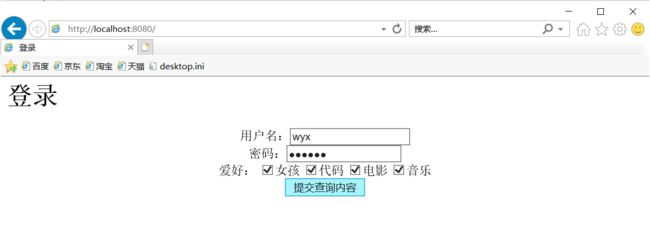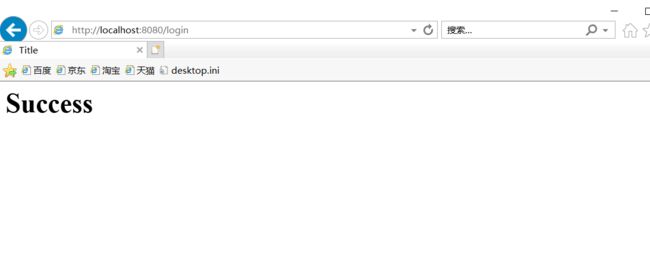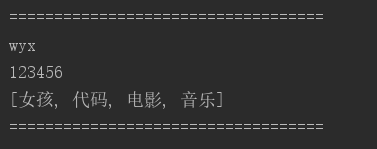Servlet
1、Servlet简介
Servlet就是sun公司开发动态web的一门技术
sun在这些API中提供一个接口叫做:Servlet,如果你想开发一个Servlet程序,只需要完成两个小步骤:
编写一个类,实现Servlet接口,
把开发好的Java类部署到web服务器中;
把实现了Servlet接口的Java程序叫做:Servlet
2、HelloServlet
新建一个普通的maven项目,删掉里面的src目录,在这个项目里面建立Module;这个空的工程就是Maven主工程
关于Maven父子工程的理解:
父项目会有:
servlet-01
子项目中会有:
javaweb-02-servlet
com.star
1.0-SNAPSHOT
父项目中的Java子项目可以直接使用
Maven环境优化
修改web.xml为最新的
将Maven的结构搭建完成(添加Java,Resources并且标记)
-
编写一个普通类,在Java中创建包,再新建java class;
实现Servlet接口,这里我们直接继承HttpServlet类;
因为我们没有这个servlet-api这个jar包,所以需要手动导入
- 直接在pom.xml的dependencies标签中添加代码,会在将jar包下载到本地仓库,就可以使用了
javax.servlet javax.servlet-api 4.0.1 provided - 或者进入Project Structure(ctrl+shift+alt+s直接进入),点击 + 号——>java,找到Tomcat中lib文件夹下的Javax.servlet.api.jar,点击OK就可以了。
public class HelloServlet extends HttpServlet { @Override protected void doGet(HttpServletRequest req, HttpServletResponse resp) throws ServletException, IOException { //ServletOutputStream outputStream = resp.getOutputStream(); //ServletInputStream inputStream = req.getInputStream(); PrintWriter writer = resp.getWriter(); writer.println("hello,Servlet"); } @Override protected void doPost(HttpServletRequest req, HttpServletResponse resp) throws ServletException, IOException { doGet(req, resp); } }编写Servlet的映射
为什么需要映射:我们写的是JAVA程序,但是要通过浏览器访问,而浏览器需要连接web服务器,所以我们需要再web服务中注册我们写的Servlet,还需给他一个浏览器能够访问的路径;
hello
com.kuang.servlet.HelloServlet
hello
/hello
- 配置Tomcat(之前已说)
注意:配置项目发布的路径就可以了
3、Servlet原理
Servlet是由web服务器调用,web服务器再收到浏览器请求之后,会:

4、Mapping问题
- 一个Servlet可以指定一个映射路径
hello
/star
- 一个Servlet可以指定多个映射路径
hello
/star2
hello
/star3
hello
/star4
hello
/star5
- 一个Servlet可以指定通用映射路径
hello
/star/*
- 默认请求路径
hello
/*
- 指定一些后缀或者前缀等等...
hello
*.do
**注意:‘*’前面不能加映射的路径**
- 指定优先级问题
指定了固定的映射路径优先级最高,如果找不到就走默认的处理要求;
error
com.star.servlet.ErrorServlet
error
/*
5、ServletContext
web容器再启动的时候,它会为每个web程序都创建一个对应的ServletContext对象,它代表的了当前的web应用;
- 共享数据
我在这个Servlet中的保存的数据,可以在另外一个Servlet中拿到;
public class HelloServlet extends HttpServlet {
@Override
protected void doGet(HttpServletRequest req, HttpServletResponse resp) throws ServletException, IOException {
//this.getInitParameter() 初始化参数
//this.getServletConfig() Servlet配置
//this.getServletContext Servlet上下文
ServletContext context = this.getServletContext();
String username="张三";//数据
context.setAttribute("username",username);
System.out.println("Hello");
}
}
public class GetServlet extends HttpServlet {
@Override
protected void doGet(HttpServletRequest req, HttpServletResponse resp) throws ServletException, IOException {
ServletContext context = this.getServletContext();
String username = (String) context.getAttribute("username");
resp.setContentType("text/html");
resp.setCharacterEncoding("utf-8");
PrintWriter writer = resp.getWriter();
writer.print("名字:"+username);
}
@Override
protected void doPost(HttpServletRequest req, HttpServletResponse resp) throws ServletException, IOException {
doGet(req,resp);
}
}
hello
com.star.servlet.HelloServlet
hello
/hello
getc
com.star.servlet.GetServlet
getc
/getc
- 获取初始化参数
url
jdbc:mysql://localhost:3306/mybatis
public class ServletDemo03 extends HttpServlet {
@Override
protected void doGet(HttpServletRequest req, HttpServletResponse resp) throws ServletException, IOException {
ServletContext context = this.getServletContext();
//获取初始化参数
String url = context.getInitParameter("url");
resp.getWriter().print(url);
}
@Override
protected void doPost(HttpServletRequest req, HttpServletResponse resp) throws ServletException, IOException {
doGet(req, resp);
}
}
gp
com.star.servlet.ServletDemo03
gp
/gp
- 请求转发
public class ServletDemo04 extends HttpServlet {
@Override
protected void doGet(HttpServletRequest req, HttpServletResponse resp) throws ServletException, IOException {
ServletContext context = this.getServletContext();
System.out.println("进入了ServletDemo04");
RequestDispatcher requestDispatcher = context.getRequestDispatcher("/gp");//获取请求转发的路径
requestDispatcher.forward(req,resp);//调用forward实现请求转发
//context.getRequestDispatcher("/gp").forward(req,resp);
}
@Override
protected void doPost(HttpServletRequest req, HttpServletResponse resp) throws ServletException, IOException {
doGet(req, resp);
}
}
sd4
com.star.servlet.ServletDemo04
sd4
/sd4
- 读取资源文件
Peoperties 在Java目录下新建Properties
在resources目录下新建Properties
发现:都被打包到了同一个路径下:class,我们称这个路径为classpath;
思路:需要一个文件流
username=root
password=123456public class ServletDemo05 extends HttpServlet {
@Override
protected void doGet(HttpServletRequest req, HttpServletResponse resp) throws ServletException, IOException {
InputStream is = this.getServletContext().getResourceAsStream("/WEB-INF/classes/db.properties");
Properties properties = new Properties();
properties.load(is);
String username = properties.getProperty("username");
String password = properties.getProperty("password");
resp.getWriter().print(username+":"+password);
}
@Override
protected void doPost(HttpServletRequest req, HttpServletResponse resp) throws ServletException, IOException {
doGet(req, resp);
}
}
sd5
com.star.servlet.ServletDemo05
sd5
/sd5
6、HttpServletResponse
web服务器接收到客户端的http请求,针对这个请求,分别创建一个代表请求的HttpServletRequest对象,代表响应的一个HttpServletResponse对象;
如果要获取客户端请求过来的参数,找HttpServletRequest
如果要获取客户端响应一些信息,找HttpServletResponse
1、简单分类
负责向浏览器发送数据的方法
ServletOutputStream getOutputStream() throws IOException;
PrintWriter getWriter() throws IOException;负责向浏览器发送响应头的方法
void setCharacterEncoding(String var1);
void setContentLength(int var1);
void setContentLengthLong(long var1);
void setContentType(String var1);
void setDateHeader(String var1, long var2);
void addDateHeader(String var1, long var2);
void setHeader(String var1, String var2);
void addHeader(String var1, String var2);
void setIntHeader(String var1, int var2);
void addIntHeader(String var1, int var2);响应的状态码
int SC_CONTINUE = 100;
int SC_SWITCHING_PROTOCOLS = 101;
int SC_OK = 200;
int SC_CREATED = 201;
int SC_ACCEPTED = 202;
int SC_NON_AUTHORITATIVE_INFORMATION = 203;
int SC_NO_CONTENT = 204;
int SC_RESET_CONTENT = 205;
int SC_PARTIAL_CONTENT = 206;
int SC_MULTIPLE_CHOICES = 300;
int SC_MOVED_PERMANENTLY = 301;
int SC_MOVED_TEMPORARILY = 302;
int SC_FOUND = 302;
int SC_SEE_OTHER = 303;
int SC_NOT_MODIFIED = 304;
int SC_USE_PROXY = 305;
int SC_TEMPORARY_REDIRECT = 307;
int SC_BAD_REQUEST = 400;
int SC_UNAUTHORIZED = 401;
int SC_PAYMENT_REQUIRED = 402;
int SC_FORBIDDEN = 403;
int SC_NOT_FOUND = 404;
int SC_METHOD_NOT_ALLOWED = 405;
int SC_NOT_ACCEPTABLE = 406;
int SC_PROXY_AUTHENTICATION_REQUIRED = 407;
int SC_REQUEST_TIMEOUT = 408;
int SC_CONFLICT = 409;
int SC_GONE = 410;
int SC_LENGTH_REQUIRED = 411;
int SC_PRECONDITION_FAILED = 412;
int SC_REQUEST_ENTITY_TOO_LARGE = 413;
int SC_REQUEST_URI_TOO_LONG = 414;
int SC_UNSUPPORTED_MEDIA_TYPE = 415;
int SC_REQUESTED_RANGE_NOT_SATISFIABLE = 416;
int SC_EXPECTATION_FAILED = 417;
int SC_INTERNAL_SERVER_ERROR = 500;
int SC_NOT_IMPLEMENTED = 501;
int SC_BAD_GATEWAY = 502;
int SC_SERVICE_UNAVAILABLE = 503;
int SC_GATEWAY_TIMEOUT = 504;
int SC_HTTP_VERSION_NOT_SUPPORTED = 505;2、常见应用
- 下载文件
- 要获取下载文件的路径
- 下载的文件名
- 设置想办法让浏览器能够支持下载我们需要的东西
- 获取下载文件的输入流
- 创建缓冲区
- 获取OutputStream对象
将FileOutputStream流写入到buffer缓冲区,使用Outputstream将缓冲区中的数据输出到客户端!
```java
public class FileServlet extends HttpServlet {
@Override
protected void doGet(HttpServletRequest req, HttpServletResponse resp) throws ServletException, IOException {
// 1. 要获取下载文件的路径
String realPath = "E:\IdeaProjects\javaweb-02-servlet\response\src\main\resources\1.png";
System.out.println("下载文件的路径:"+realPath);
// 2. 下载的文件名
String filename = realPath.substring(realPath.lastIndexOf("\") + 1);
System.out.println("文件名:"+ filename);
// 3. 设置想办法让浏览器能够支持下载我们需要的东西
resp.setHeader("Content-Disposition","attachment;filename="+filename);
// 4. 获取下载文件的输入流
FileInputStream in = new FileInputStream(realPath);
// 5. 创建缓冲区
int len=0;
byte[] buffer = new byte[1024];
// 6. 获取OutputStream对象
ServletOutputStream out = resp.getOutputStream();
// 7. 将FileOutputStream流写入到buffer缓冲区,使用Outputstream将缓冲区中的数据输出到客户端!
while ((len=in.read(buffer))>0){
out.write(buffer,0,len);
}in.close();
out.close();
}
protected void doPost(HttpServletRequest req, HttpServletResponse resp) throws ServletException, IOException {
doGet(req, resp);
}
}
xml
response
com.star.servlet.FileServlet
response
/down
```
测试访问结果
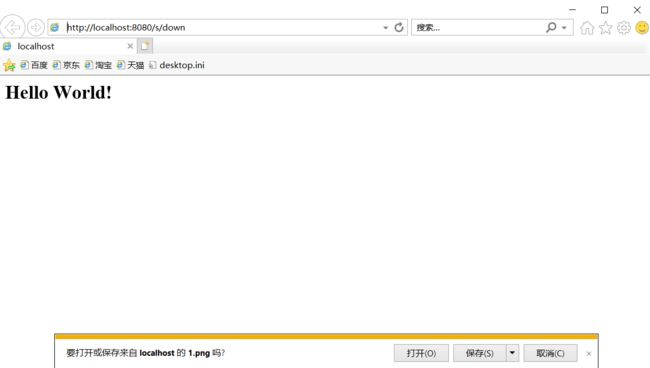
3、验证码功能
验证怎么来的?
- 前端实现
- 后端实现,需要用Java的图片类,生产一个图片
public class ImageServlet extends HttpServlet {
@Override
protected void doGet(HttpServletRequest req, HttpServletResponse resp) throws ServletException, IOException {
//让浏览器3秒刷新一次
resp.setHeader("refresh","3");
//在内存中创建一个图片
BufferedImage image = new BufferedImage(80, 20, BufferedImage.TYPE_INT_RGB);
//得到图片
Graphics2D g = (Graphics2D) image.getGraphics();//笔
//设置图片的背景颜色
g.setColor(Color.black);
g.fillRect(0,0,80,20);
//给图片写数据
g.setColor(Color.RED);//换颜色
g.setFont(new Font(null,Font.BOLD,20));//字体
g.drawString(makenum(),0,20);//画字符串
//告诉浏览器,这个请求用图片的方式打开
resp.setContentType("image/jpeg");
//网站存在缓存,不让浏览器缓存
resp.setDateHeader("expires",-1);
resp.setHeader("Cache-Control","no-cache");
resp.setHeader("Pragma","no-cache");
//把图片写给浏览器
ImageIO.write(image,"jpg",resp.getOutputStream());
}
//生成随机数,一个七位数
private String makenum(){
Random random = new Random();
String num = random.nextInt(9999999)+"";
StringBuffer sb = new StringBuffer();
for (int i = 0; i < 7-num.length(); i++) {
sb.append("0");
}
num = sb.toString() + num;
return num;
}
@Override
protected void doPost(HttpServletRequest req, HttpServletResponse resp) throws ServletException, IOException {
doGet(req, resp);
}
}
imageServlet
com.star.servlet.ImageServlet
imageServlet
/imageServlet
B,一个web资源收到客户端A请求后,B他会通知A去访问另外一个web资源C,这个过程就叫做重定向
常见场景:
- 用户登录
public class RedirectServlet extends HttpServlet {
@Override
protected void doGet(HttpServletRequest req, HttpServletResponse resp) throws ServletException, IOException {
resp.sendRedirect("/s/imageServlet");
}
@Override
protected void doPost(HttpServletRequest req, HttpServletResponse resp) throws ServletException, IOException {
doGet(req, resp);
}
}
RedirectServlet
com.star.servlet.RedirectServlet
RedirectServlet
/rs
请求转发和重定向的区别
相同点
public class RequestTest extends HttpServlet {
@Override
protected void doGet(HttpServletRequest req, HttpServletResponse resp) throws ServletException, IOException {
//处理请求
String username = req.getParameter("username");
String password = req.getParameter("password");
System.out.println(username+":"+password);
resp.sendRedirect("/s/success.jsp");
req.setCharacterEncoding("utf-8");
resp.setCharacterEncoding("utf-8");
}
@Override
protected void doPost(HttpServletRequest req, HttpServletResponse resp) throws ServletException, IOException {
doGet(req, resp);
}
}
Hello World!
<%--这里提交的路径,需要寻找到项目的路径--%>
<%--${pageContext.request.ContextPath}--%>
<%@ page contentType="text/html;charset=UTF-8" language="java" %>
Title
Success
7、HttpServletRequest
HttpServlet代表客户端的请求,用户通过Http协议访问服务器,HTTP请求中的所用信息会被封装带HttpServletRequest,通过这个HttpServlet的方法,获得客户端的所有信息
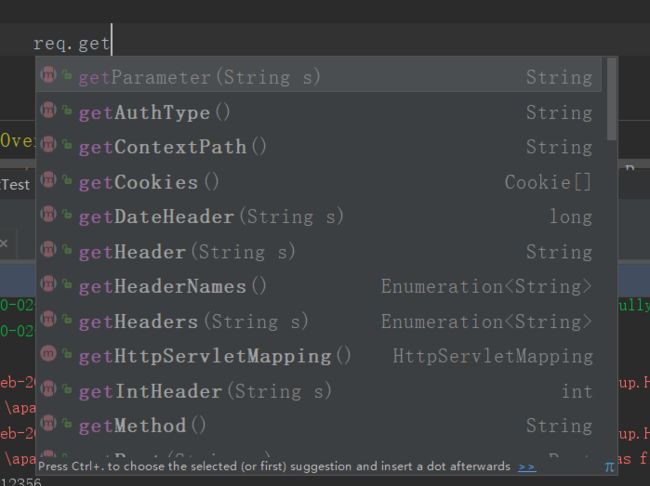
获得参数,请求转发
public class LoginServlet extends HttpServlet {
@Override
protected void doGet(HttpServletRequest req, HttpServletResponse resp) throws ServletException, IOException {
String username = req.getParameter("username");
String password = req.getParameter("password");
String[] hobbys = req.getParameterValues("hobbys");
System.out.println("===================================");
System.out.println(username);
System.out.println(password);
System.out.println(Arrays.toString(hobbys));
System.out.println("===================================");
//请求转发
//这里的/代表当前的web应用
req.getRequestDispatcher("/success.jsp").forward(req,resp);
resp.setCharacterEncoding("utf-8");
}
@Override
protected void doPost(HttpServletRequest req, HttpServletResponse resp) throws ServletException, IOException {
doGet(req,resp);
}
}
LoginServlet
com.star.servlet.LoginServlet
LoginServlet
/login
<%@ page contentType="text/html;charset=UTF-8" language="java" %>
登录
登录
<%--居中--%>
<%--这里表单表示的意思:以post方式提交表单,提交到我们的login请求--%>
<%@ page contentType="text/html;charset=UTF-8" language="java" %>
Title
Success
